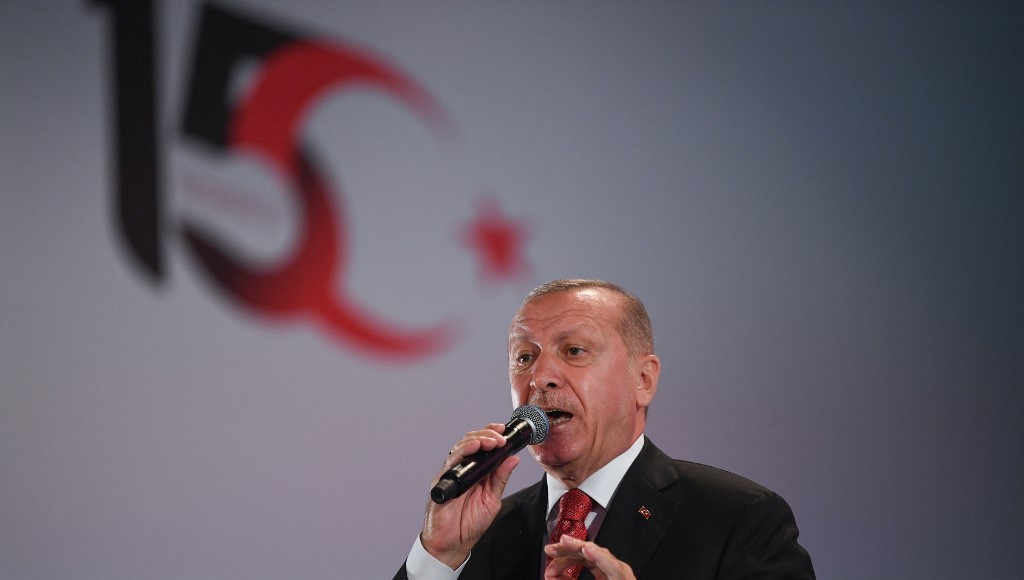Türkmen Terzi
Seven years have passed since the tumultuous events of July 15, 2016, when a coup attempt shook Turkey to its core. The country was plunged into unprecedented chaos on that day, and yet, the full truth behind the failed coup remains shrouded in mystery. Turkish President Recep Tayyip Erdoğan was quick to point fingers, accusing US-based Islamic cleric Fethullah Gülen of masterminding the coup during a press conference at İstanbul Airport on July 16. Gülen, however, has continually denied any involvement in the coup attempt. There is a consensus among all the major opposition parties in Turkey, and a significant portion of the media, that members of the Justice and Development Party (AKP) may have had a hand in the coup attempt. Allegations have also been made that the AKP and its electoral partner, the Nationalist Movement Party (MHP), have hindered official investigations to conceal their potential involvement.
Over the last two years, the opposition parties have submitted more than 13 parliamentary motions to investigate the political connections of the July 15 event, but the AKP has consistently obstructed these attempts. Kemal Kılıçdaroğlu, the leader of the main opposition Republican People’s Party (CHP), has boldly accused Erdoğan of being the political mastermind behind the coup attempt. Temel Karamollaoğlu, leader of the Felicity Party, has suggested that the AKP itself was the political wing of the July 15 coup attempt. Both the Iyi (Good) Party and the pro-Kurdish Peoples’ Democratic Party (HDP) have repeatedly submitted motions to parliament demanding the revelation of the political motivations behind the July 15 coup attempt. Prominent Turkish investigative journalist and former MP Ahmet Şık has accused the AKP of suppressing the full video footage from Akıncı Air Base and General Staff headquarters, critical locations during the coup. A parliamentary commission, comprising lawmakers from four different parties, began an investigation into the coup in October. However, this inquiry was abruptly terminated in December 2016 following Erdoğan’s assertion that everything was transparent and clear, thus stopping key figures such as chief of national intelligence Hakan Fidan and Defense Minister Hulusi Akar, who were central to the events, from being summoned. This means that the Turkish Parliament’s archives contain no information regarding the July 15 coup attempt. Meanwhile, Erdoğan continues to pursue his critics, including their families and those involved in charitable work, without any charges.
In the aftermath of the coup attempt, the courts, driven by political motives, detained tens of thousands of individuals associated with the Gülen movement, inspired by cleric Gülen. Over 130,000 civil servants were dismissed from their positions in a post-coup purge, and more than 150 media outlets were closed down. Although around 300 soldiers participated in the coup, the repercussions extended to more than 24,000 soldiers who were expelled from the Turkish army, including 150 generals. As a result of this sweeping crackdown, Erdoğan’s AKP filled key state institutions solely with those most loyal to the party and its leader. Erdoğan managed to effect a significant political transition, converting Turkey’s parliamentary system into a type of executive presidency, effectively establishing one-man rule. Erdoğan interpreted the coup attempt as a “gift from God.”
The enigmatic events of July 15 enabled Erdoğan to obscure his illicit activities, including the extensive corruption cases of December 2013, which implicated his family and inner circle. Erdoğan established a power-sharing alliance with the Turkish military establishment, referred to as the “deep state.” The judiciary and police, backed by Erdoğan, conducted the Ergenekon and Sledgehammer trials against senior Turkish military personnel, journalists, academics, businesspeople, politicians and members of the political opposition. Ergenekon refers to an alleged clandestine network accused of operating as a parallel state within Turkey for several decades. Nevertheless, in April 2015, Turkey’s politically influenced courts acquitted 236 former military personnel in the high-profile Sledgehammer (Balyoz) case. Reports suggest many of these acquitted soldiers were active participants in the July 15 coup attempt. The Ergenekon and Sledgehammer trials unveiled the deep state’s involvement in numerous extrajudicial killings, including those of Turkish Armenian journalist Hrant Dink, academic Necip Hablemitoğlu and Muhsin Yazıcıoğlu, the founder and leader of the Grand Unity Party (BBP), among others during the early years of AKP rule. Erdoğan subsequently shifted blame for these murders onto the Gülen movement, aligning himself with the deep state and evading responsibility. Recently, former brigadier general Gökhan Şahin Sönmezateş, who was involved in the coup attempt, stated during a coup trial that July 15 was not a Gülenist-led coup, but a state conspiracy. He further claimed that the coup was orchestrated by commanders acting under orders from Hulusi Akar, and he argued that Yaşar Güler, the-then deputy chief of general staff, and Hakan Fidan, the head of the National Intelligence Organization (MIT) at the time, should testify in court to determine the truth behind the coup attempt.
Erdoğan has made multiple, conflicting statements about the commencement time of the coup attempt. This has fueled speculation that he may have planned to stage the coup in the seaside resort town of Marmaris in southwestern Turkey, as he mysteriously disappeared from public view between July 9 and July 15. The coup attempt’s most controversial figures, Fidan and Akar, despite having spent six hours in meetings at army headquarters the day before the coup, have not revealed significant details about the coup attempt. Despite their controversial roles, they were promoted within the establishment.
The Bosporus Bridge in İstanbul has since been renamed the July 15 Martyrs Bridge in an effort to maintain the official narrative. Numerous other institutions, bridges, schools and roads have been named after July 15 to reinforce the established discourse. Erdogan’s AKP continues to prevent media houses, political parties and even the parliament from investigating the true culprits behind the 15 July coup attempt. Instead, the party continues to scapegoat the Gülen movement, using it as a smokescreen to obscure their own wrongdoings.

